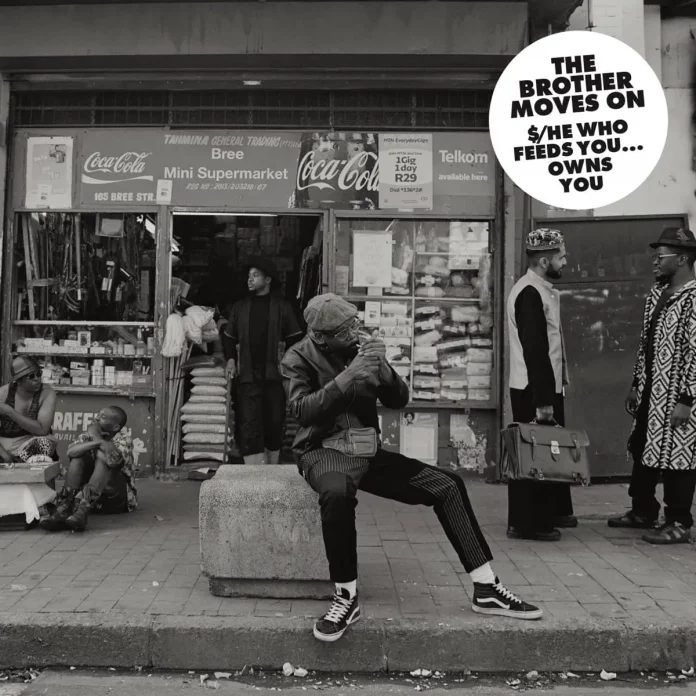This is the first album by established Johannesburg-based art ensemble The Brother Moves On for Shabaka Hutchings’ label Native Rebel Recordings. It features Siyabonga Mthembu, whose impressive vocal range includes shouts, growls, chants and resonantly held notes in songs which tell of social issues and the liberation struggle.
Often with accompanying chorus, Mthembu is supported by tightly orchestrated arrangements with opportunities for improvisation – a direct link to the traditions of the earlier South African music of Philip Tabane, Pat Matshikiza, The Blue Notes and others. The music flows between jazz, traditional strands and Afro-beat, moving seamlessly from one style to another; the horns are right on the button when the moment comes.
Producer Hutchings also contributes and his work on Itumeleng, where he plays flute in tandem with tenor saxophonist Muhammad Dawjee, produces a warm, mellow-toned section which, becoming fragmented, sits above a bubbling keyboard and bass. More laidback than Batsumi’s version from the 70s, it shares a similar vocal section to the original, ending with an a cappella chant.
Like that of many esteemed South African bassists before him, Ayanda Zelekili’s playing is pivotal. It’s demonstrated on Bayakhala, where he leads and intertwines with Zelizwe Mthembu’s guitar and the drumming of Simphiwe Tshabalala; voices respond, horns in unison, then there is a tantalising taste of the rounded tones of Malcolm Jiyane’s trombone.
A cappella is used again in Hamba, a moving introduction to a funeral, with Siyabonga’s voice sitting above a busy backcloth of supporting vocals. This is followed by a richly rhythmic arrangement, the momentum provided by bass and drums and the orchestrated unity of the frontline players.
Zelizwe’s jangling guitar fills the space behind solos on the longer, percussive Puleng and he plays a similar role on Sphila, which is notable for its shifting tempos and the density of the propulsive communal playing. Mazel is a political statement about the historical and continued abhorrence of apartheid, in a mournfully stirring setting. The only reservation this listener has is the slightly heavy-metal riff on Ta Tom, but that’s a minor quibble on what is a hugely enjoyable album.
Discography
Puleng (Intro); Bayakhala; Sphila; Puleng (Extended version); Itumeleng Revisited; Sweetie Love Oh; Hamba The Reprise; Mazel; Ta Tom (50.42)
Siyabonga Mthembu (v); Mthunzi Mvubua (as); Muhammad Dawjee (ts); Malcolm Jiyane (tb); Shabaka Hutchings (f, cl); Zelizwe Mthembu (g); Bokani Dyer (keys); Ayanda Zelekili (b); Simphiwe Tshabalala (d). Pretoria & Centurion, South Africa, 2022.
Native Rebel Recordings NRR005DLP















